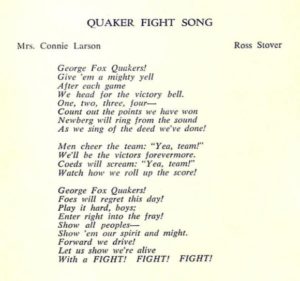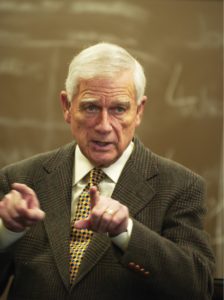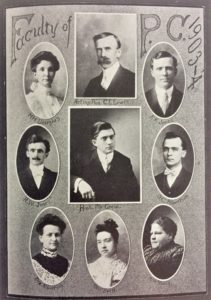Friends Foundation and Development
The Friends values on which George Fox University was founded set it apart from other evangelical universities. In the past, Quakers have been on the religious forefront of social justice movements including abolition, women’s rights, and peacemaking. Today GFU’s student population is a diverse combination of different denominations, and GFU continues to promote global action and conscientious living based upon Christian foundations.
Lifestyle Expectations
Quaker influence on the GFU campus is still glimpsed in the current lifestyle contract. Early Quaker practices and educational standards created a stricter contract that banned playing cards, social dancing, and mandated curfew. Today’s contract is much more lenient but still maintains a dedication to core values.
The goal of the George Fox University lifestyle standard is to create a community in which individuals are encouraged to be transformed into the image of Christ. In addition, we desire that our common life would reflect the teachings and Spirit of Christ in all that we do and say. In this ongoing process of transformation, all members of the George Fox community are encouraged to consider the following questions as a means of self-examination, in the tradition of the historic Friends (Quakers).
2024-2025 Student Handbook
Campus Institutions
Peacemaking

The current George Fox University Statement of Faith states “We believe that God has called us to be and to make disciples of Jesus Christ and to be God’s agents of love and reconciliation in the world. In keeping with the teaching of Jesus, we work to oppose violence and war, and we seek peace and justice in human relationships and social structures.” Traditionally Quakers practice peacemaking. Prior to GFU’s merger with Western Evangelical Seminary, the Statement of Faith had a clause stating “We believe all war is utterly incompatible with the plain precepts of our divine Lord and Lawgiver.” During World War I some Pacific College students joined the military, but better known were the students that participated in war relief service in Europe during and after the war. A number of students served during WWII, but there were also some who served in Civilian Public Service Camps as conscientious objectors.
The Center for Peace and Justice

The Center for Peace and Justice, previously the Center for Peace Learning, was founded in 1984. Its goal is to “nurture agents of hope, people who embody in their citizenship, careers, and daily lives God’s promised gifts of peace and reconciliation,” and is a way George Fox University implements its Christ-centered, Friends mission. Students can attend guest lecturers and forums hosted by the Center for Peace and Justice, take courses in their curriculum, and pursue a minor in Peace studies and a certificate in Conflict Management.
Equality in Leadership

Quaker women have been allowed to speak in meetings since the denomination’s founding, and this equal view of women’s voices influenced George Fox’s history. Both men and women were professors and students from Pacific College’s founding. The college had a significant percentage of women faculty members until the 1960s when accreditors required an increase in faculty who had terminal degrees. At the time, fewer women held Ph.Ds and so the number of women faculty decreased significantly. Beginning in the 1990s the university made a concerted effort to hire women faculty, especially in departments where women had not been well-represented. By 1995, over 25% of the faculty were women. GFU trains both men and women for spiritual leadership positions, reflecting the egalitarianism of the Evangelical Friends tradition.
Committies on Campus
Committees work through sense of the meeting rather than Rodgers Rules of Order. Friends believe that Christ leads a meeting for worship for business. It is the responsibility of all members of the meeting to listen to the Holy Spirit’s leading. The clerk helps to determine the sense of the meeting and makes sure that all voices are heard. If a person disagrees with a the majority, they can stand aside if they feel that this is a personal opinion and not the Spirit speaking to them. The clerk also ensures that all hearts are clear before stating the sense of the meeting and asking the group if the measure being discussed is approved or not. The recording clerk takes minutes of the meeting. The committee/group can also issue a specific “minute” where the whole group agrees on the specific wording of a decision/advice.
Faculty on Campus
Some of the faculty go by their first names rather than titles with the belief that titles separate the community. Some faculty have also decided not to accept tenure again with the issue that this creates divisions among the faculty.
Quaker Heritage Week (discontinued)
Quaker Heritage Week was started by Arthur Roberts and the Department of Religious studies in 1975 to recognize GFU’s background and familiarize students with Quaker traditions. This week provides an annual opportunity for featuring a particular aspect of the Friends heritage in ways that enrich other Christian traditions as well.